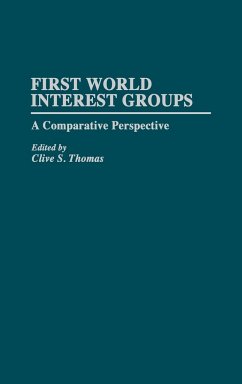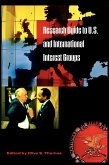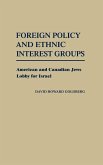This first comprehensive appraisal of interest groups in Western democracies in thirty years a systematic comparison of interest group activities and their impact on public policymaking in twelve post-industrial First World nations. Using a conceptual framework, well-known experts provide an assessment of these interest group systems, identify similarities and differences, and point to current trends and future directions. This up-to-date overview and analysis is intended for students and specialists dealing with interest group behavior, comparative government and political institutions, and also with each country that is surveyed. This landmark comparative study of interest groups balances pluralist, corporatist, and to a lesser extent neo-Marxist approaches, synthesizing current know-how about interest groups in Australia, Britain, Canada, France, Germany, Israel, Italy, Japan, New Zealand, Sweden, Switzerland, and the United States. Each country chapter describes the factors that affect interest group make-up, their operating techniques, and their influence, and chapter demonstrates how the interest group system impacts on the public policymaking process and how well the system is explained by the conceptual framework it is studies. This study is viewed in terms of an American model, a British model with its derivations, models in continental European democracies, and in newer democracies. A concluding chapter offers further insights, and a selected bibliography is helpful in pointing as it does to important sources for further study.
Hinweis: Dieser Artikel kann nur an eine deutsche Lieferadresse ausgeliefert werden.
Hinweis: Dieser Artikel kann nur an eine deutsche Lieferadresse ausgeliefert werden.








